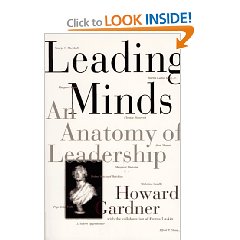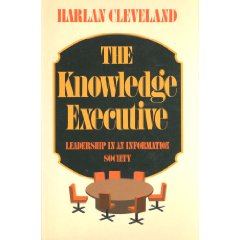April 8, 2000
Howard E. Gardner
I bought this book sometime after concluding that national intelligence leadership needed to inspire and appeal to the citizens of the USA at large, rather than being so narrowly focused on staying out of trouble with Congress while collecting secrets. This book reviews leadership of both domains and nations, with case studies on Margaret Mead (Culture), J. Robert Oppenheimer (Physics), Robert Maynard Hutchins (Education), Alfred P. Sloan, Jr. (Business), George C. Marshall (Military), Pope John XXII (Religion), Eleanor Roosevelt (Ordinariness and Extraordinariness), Martin Luther King (Minority) and Margaret Thatcher (National). The best leaders that emerge are those who are willing to confront authority and take risk, while also creating networks of contacts that number in the hundreds or thousands rather than tens. Most tellingly, aleader in a discipline (e.g. intelligence) only emerges as a long-term leader if he finally realizes that “he is more likely to achieve his personal goals or to satisfy his community if he addresses a wider audience than if he remains completely within a specific domain.” The six constants of leadership are the story, the audience (beginning with a message for the unschooled mind), the organization, the embodiment, a choice between direct (more practical) and indirect (more reflective and often more enduring) leadership, and a paradox-the direct leaders often lack knowledge while the indirect leaders often have greater knowledge, and transferring knowledge from the indirect leader to the direct leader may be one of the central challenges and opportunities of the 21st Century.





